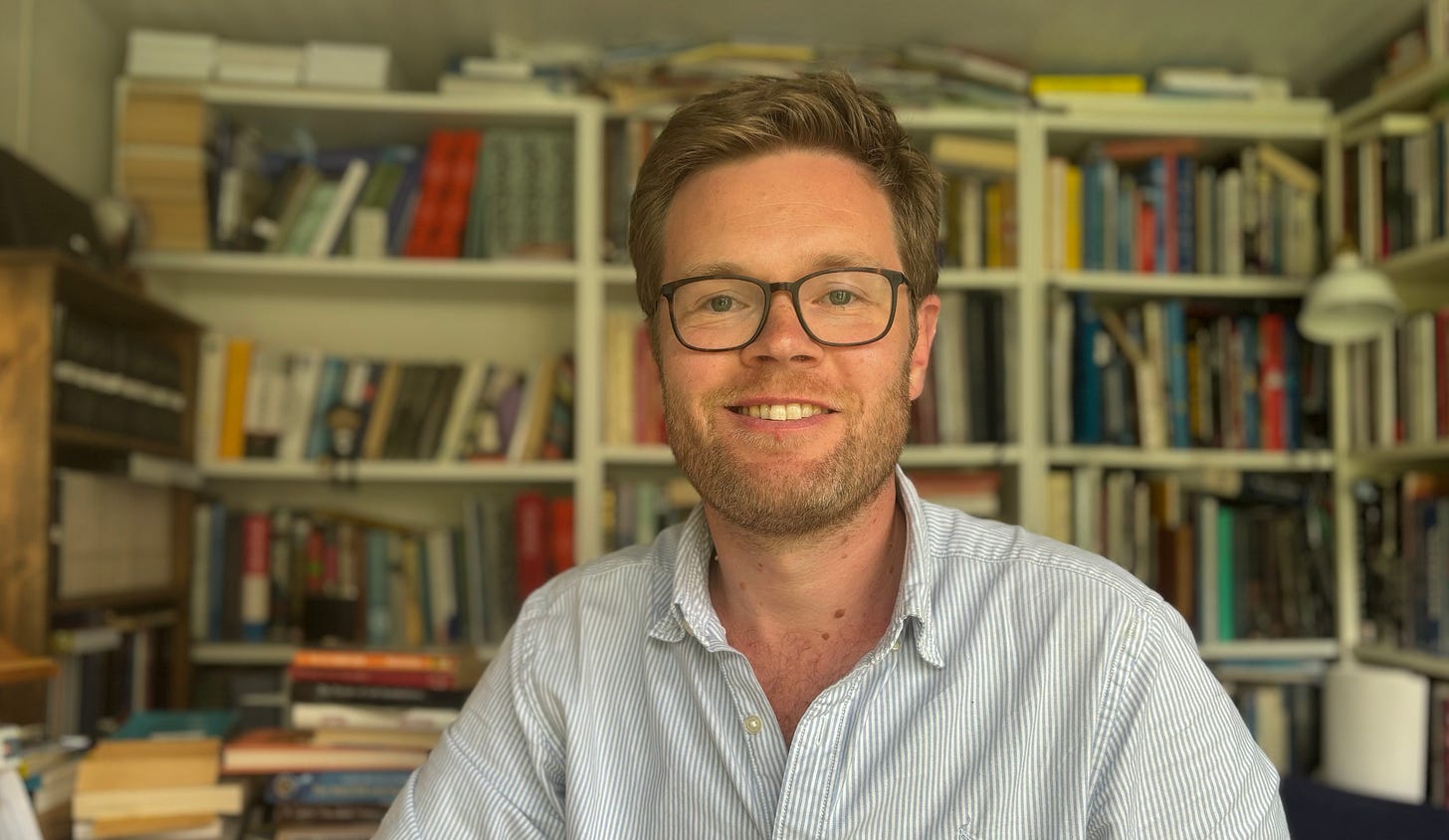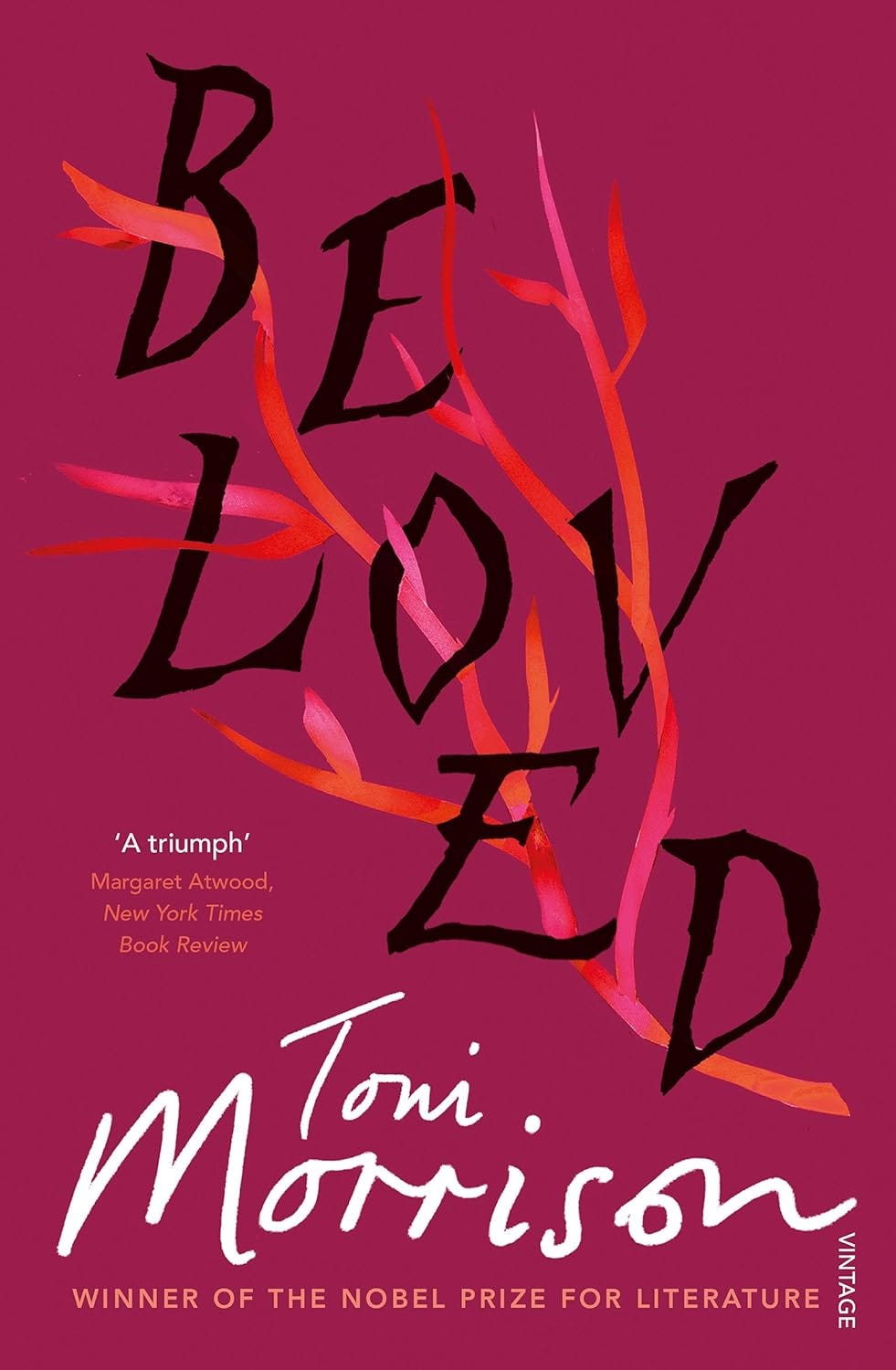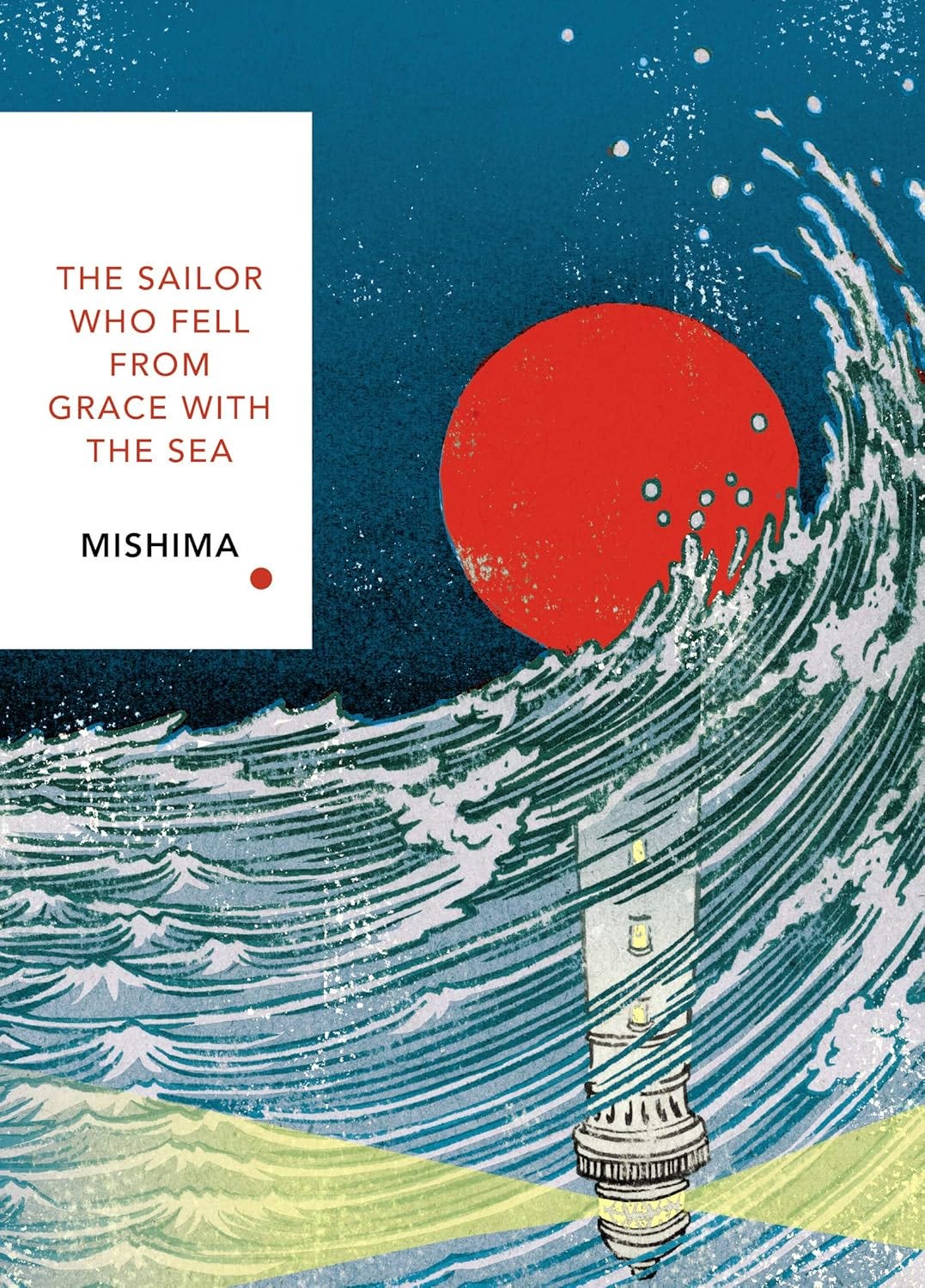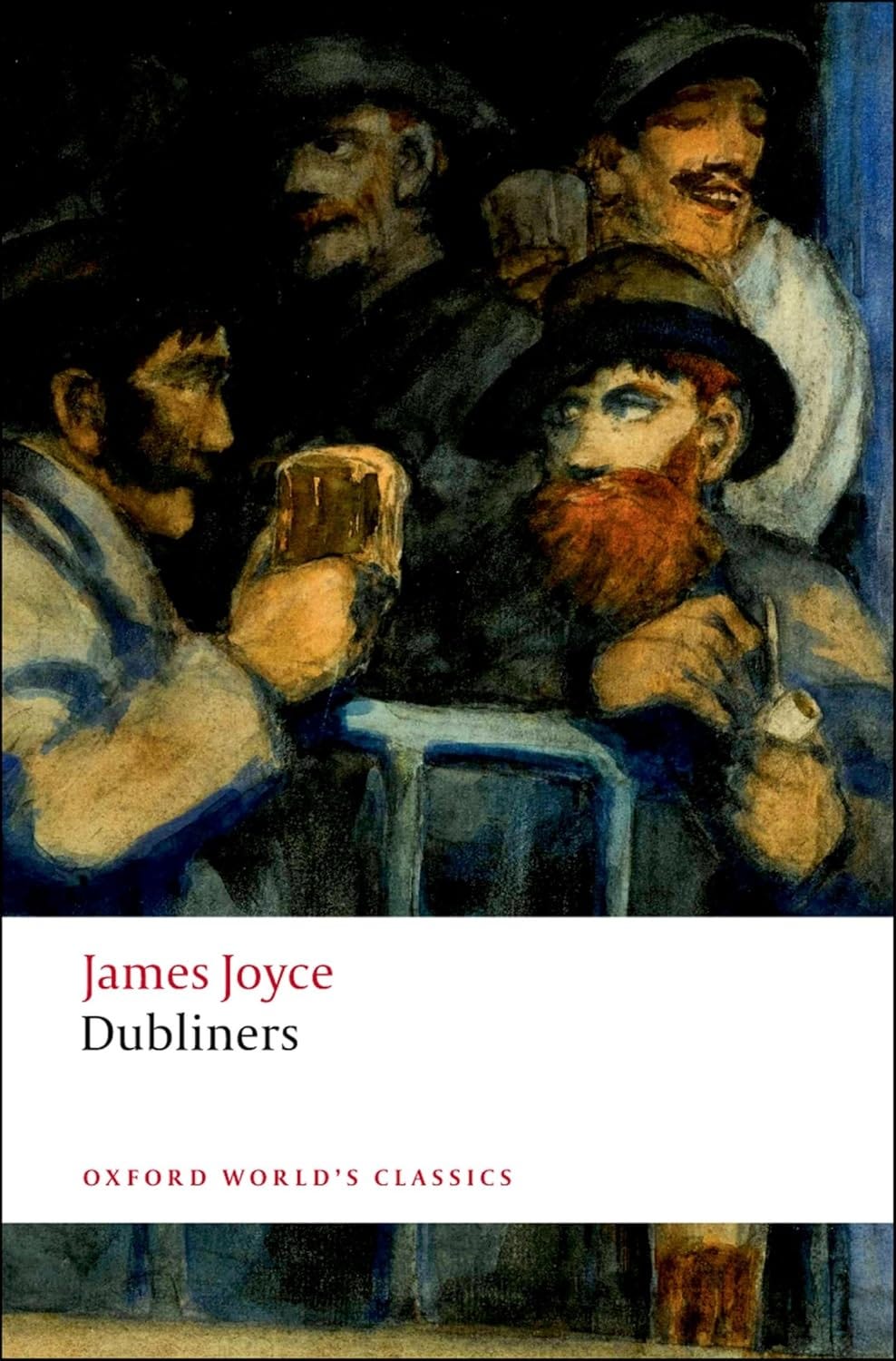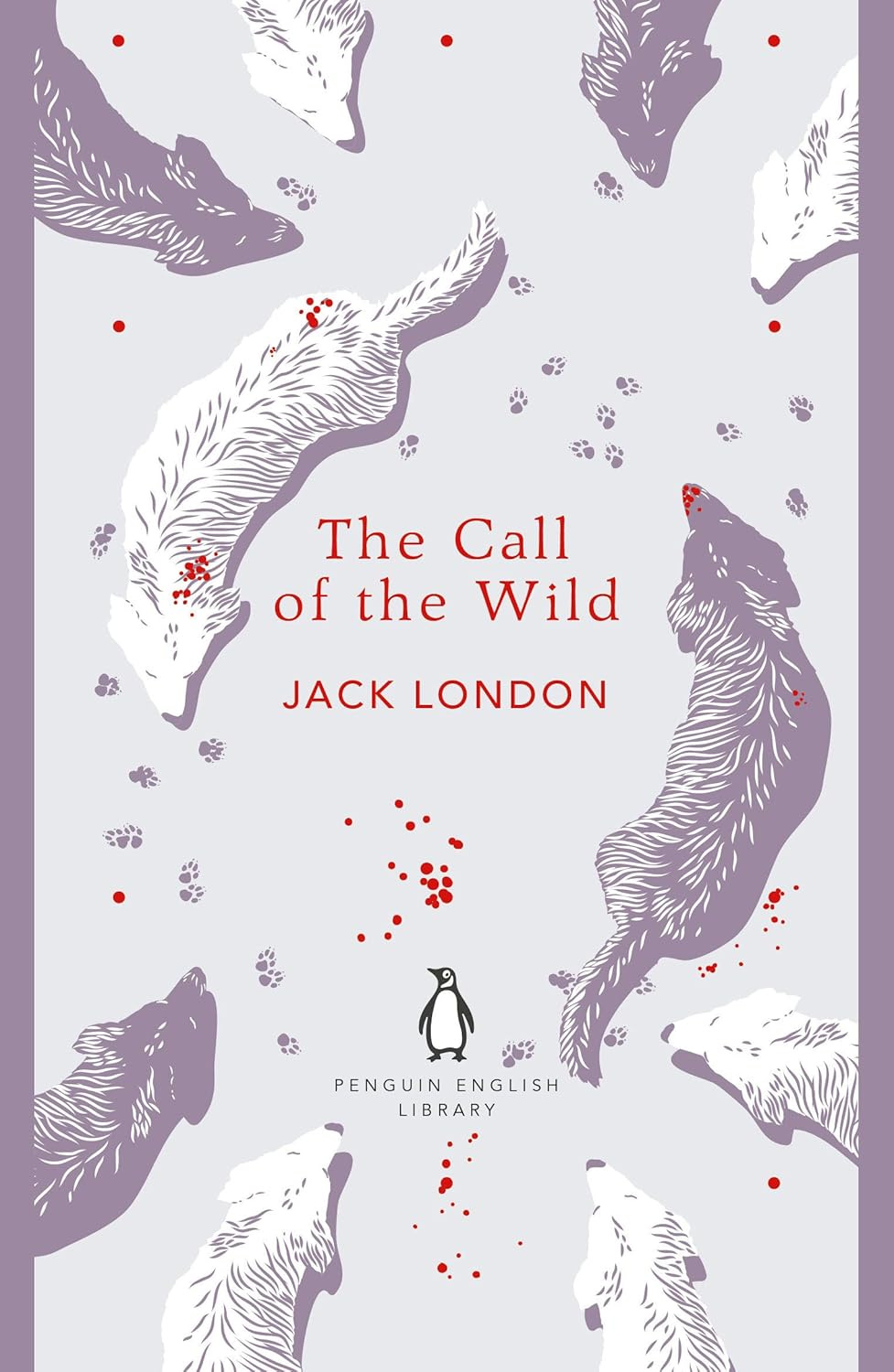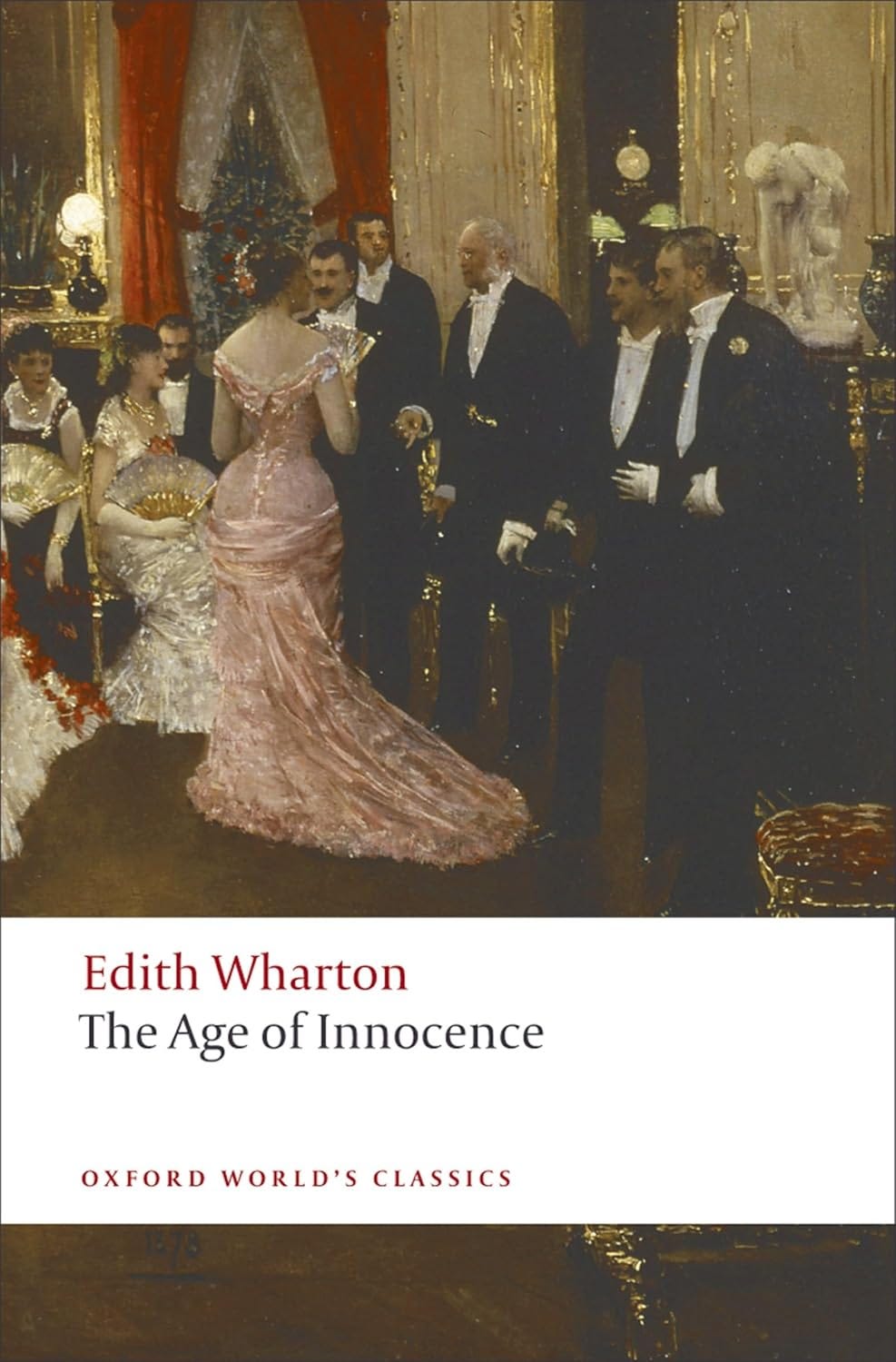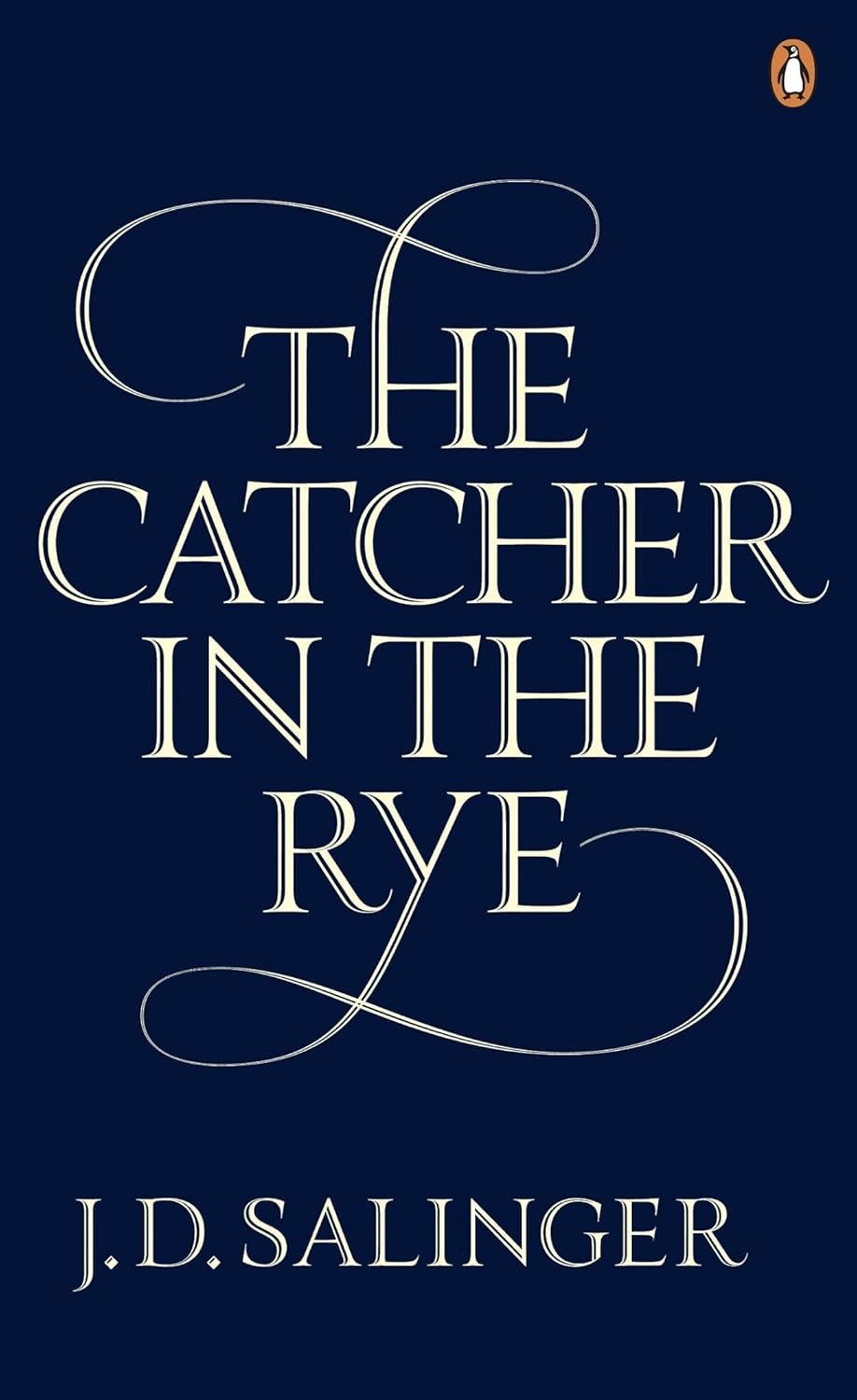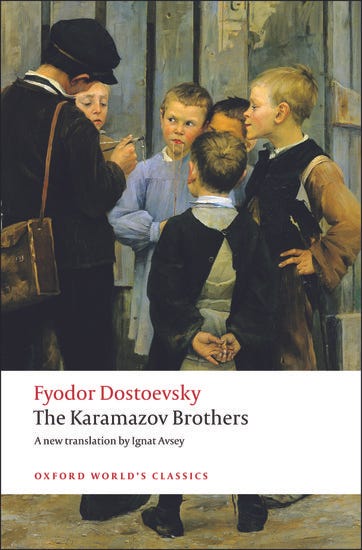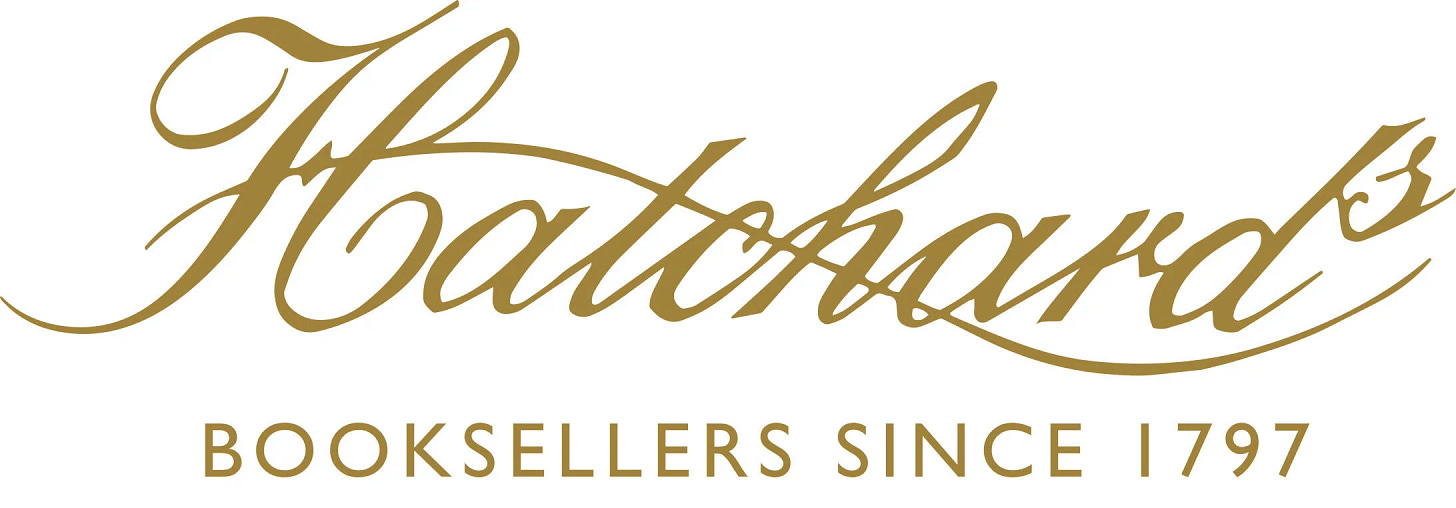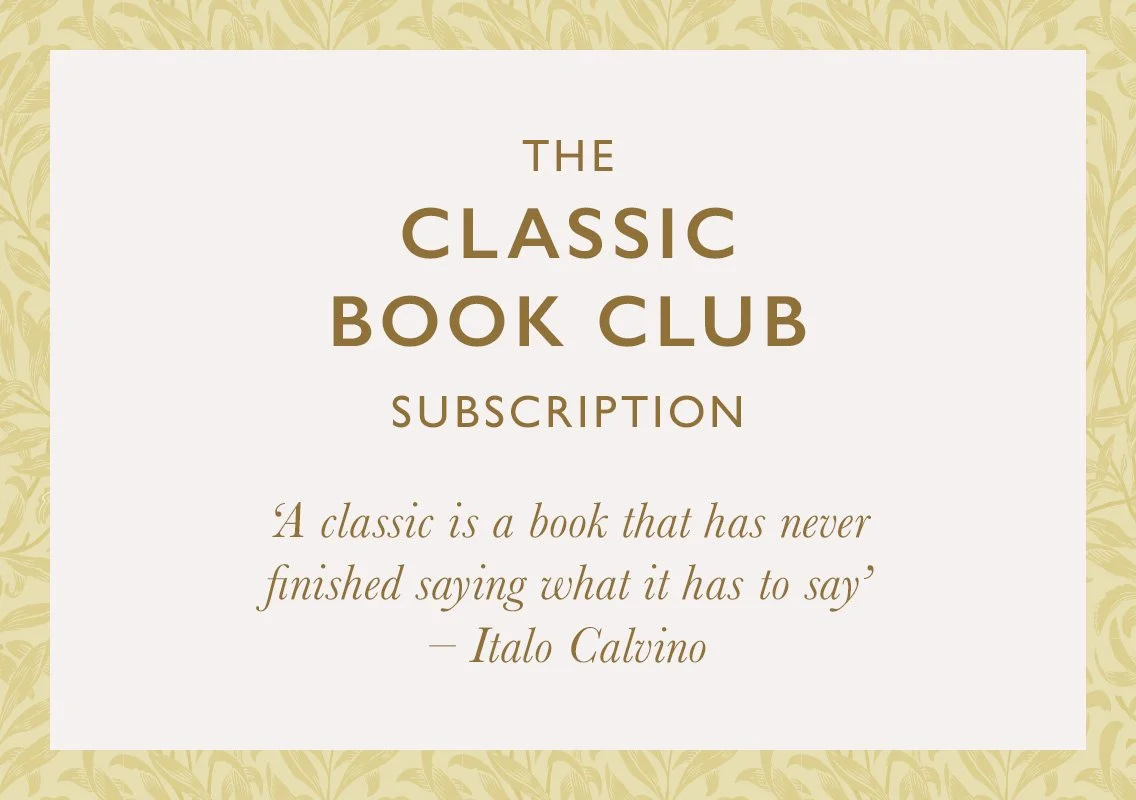Hello and welcome to Read the Classics. I’m Henry Eliot, the author of The Penguin Classics Book.
I love reading and discussing classic literature. I am currently an editor at Bloomsbury Publishing in London. I’ve previously worked as Classics Editor at Faber & Faber and Penguin Classics, where I created and hosted their podcast On the Road with Penguin Classics. I have been lucky enough to discuss literature and the classics around the world – up Scafell Pike in the Lake District, in the Argentine Embassy in London, at the Mumbai Literary Festival, outside a villa in Umbria and inside a haunted mansion in Vermont . . . and now I am loving discussing literature here on Substack.
Join me to discuss the best books ever written.
How does it work?
Subscribe to Read the Classics to receive weekly emails with:
Read-alongs. The heart of this Substack: we read a new classic book each month with weekly opportunities for paid subscribers to comment and discuss as we read along together. You can browse previous read-alongs on the home page here.
Recommendations. I regularly recommend classic books that are topical or suitable reading for the time of year.
Round-ups of newly published classics and other lists.
Free subscribers to Read the Classics receive lots of great material – including the opportunity to join a year-long slow-read of a classic title, starting each January. (This year we are reading Anna Karenina and in 2026 we will be reading Fyodor Dostoyevsky’s The Brothers Karamazov – see below.)
There is also the option to support my work for £5 a month, for which I’d be very grateful.
Paid subscribers get full access to the weekly read-along discussions and are able to comment and join these conversations.
I charge for the read-alongs because they take time to prepare, but if you would like to join and can’t afford a paid subscription, please just let me know and I will gift you a complimentary subscription.
Why subscribe?
Here’s what subscribers say about Read the Classics:
‘This is a terrific community led by a happy Henry. Thank you.’
‘All the work you put in to make this stack is so inspiring. I’m reading great books that I would never select for myself and I am all the better for it.’
‘I joined three Substack read-along book clubs this year. I chose Henry and two others because of the books they planned to read. Henry is the only one I’ve stuck with.’
‘Thank you, Henry, for inspiration and good motivation to read books that have been languishing on a shelf for years (decades in some cases)! It has been, and will continue to be, great to be a part of the read-alongs for everyone’s thoughts and ideas.’
‘I just wanted to say how much I’ve enjoyed Read the Classics this year – it’s been so interesting to read such a selection of books with all the connections between them.’
‘I am (once again) so grateful for your inspiration, guidance, and commentary, Henry, and I love reading everyone else’s reactions to the book.’
‘You’re teaching me by example to read more vigorously, to appreciate more deeply. . . . I’m slowly, slowly learning to read with your zeal. Thank you for setting that example. A restaurant critic friend used to refer to her guest for a meal she was reviewing as her “convive.” I just looked it up again, and, unlike “convivial,” it’s used narrowly in food-related settings. That’s how I’ve come to think of you — as our convive, showing us we’re at a banquet with so much to savor.’
How do the read-alongs work?
Each month I suggest a new classic for us to read at the same time.
Before we begin each book, I introduce the title and the author and set out how we’re going to read it. You get hold of your own copy and we all start reading at the same time. Then I send regular posts with my thoughts and there’s the opportunity for you to comment and discuss as we go along.
Here’s what we’ve got to look forward to over the next six months:
October 2025 – Beloved by Toni Morrison (1987)
November 2025 – The Sailor Who Fell from Grace with the Sea by Yukio Mishima (1963)
December 2025 – Dubliners by James Joyce (1914)
January 2026 – The Call of the Wild by Jack London (1903)
(As well as starting The Brothers Karamazov by Fyodor Dostoyevsky – see above.)
February 2026 – The Age of Innocence by Edith Wharton (1920)
March 2026 – The Catcher in the Rye by J. D. Salinger (1951)
We read most books over a few weeks, but some we read over a much longer period.
Over the course of 2026, for example, we will take a whole year to read ‘the most magnificent novel ever written’, as Sigmund Freud described it: The Brothers Karamazov by Fyodor Dostoyevsky. This read-along will be available to all subscribers, free and paid; we will start in January and finish in December 2026. More details to follow soon.
Not everyone will have time to read all the books, of course. Hopefully the variety of titles and formats will mean there’s something to suit everyone’s taste and timetable.
The Hatchards Classic Book Club Subscription
Hatchards, the oldest bookshop in the UK, has recently launched an annual Classic Book Club book subscription, through which you can receive (or give to a friend) all the books we read here on Read the Classics, beautifully gift-wrapped and delivered to your door, anywhere in the world.
All Hatchards subscribers receive a year’s complimentary subscription to Read the Classics, so each month you can choose to read along with us, if you wish.
It’s the perfect gift for book lovers – or the perfect treat for yourself! To find out more, follow this link or email Hatchards directly: subscriptions@hatchards.co.uk
The Hatchards Classics Book Club
And if that wasn’t enough! – if you’re based in or near London, I host a monthly classics book club in person at Hatchards (187 Piccadilly), on the first Thursday of every month, where we discuss the book we’ve just finished reading here on Read the Classics. It would be lovely to see you there!
The book club events start at 6.30pm and last an hour – tickets cost £5 with a free Hatchards Reward Card and include a glass (or two) of wine.
The events are not live-streamed, but afterwards I post a report of our discussion here on Substack.
What do I mean by a classic?
My favourite definition is the one that Ezra Pound includes at the beginning of his ABC of Reading:
‘A classic is classic not because it conforms to certain structural rules, or fits certain definitions (of which its author had quite probably never heard). It is classic because of a certain eternal and irrepressible freshness.’
It’s that quality of ‘irrepressible freshness’ that I like: a classic may be historically significant and highly renowned but fundamentally it needs to feel alive. When we read it, we need to feel a connection across time and space.
When do books become classics?
‘A book is never a masterpiece: it becomes one,’ wrote the inseparable Goncourt brothers.
In the eighteenth century, only the works of Greek and Latin authors were considered classics. In the nineteenth century, the definition was extended to include authors such as Dante, Shakespeare and Cervantes.
In the twentieth century, the term gradually became a marketing tool for publishers and since then the waiting period has become increasingly short, especially with the invention of categories such as the ‘modern classic’ and even the ‘instant classic’.
It’s tricky to assign a blanket rule, but I do think a ‘classic’ needs to have passed a test of time. For me, a classic should be roughly seventy-five years old or more, its first publication beyond most people’s living memory, and a modern classic should also belong to a previous generation, at least, say, twenty-five years old.
Why are they ‘classics’?
The word itself can be daunting. ‘Why, before long I shall become a classic!’ exclaims a novelist in one of Edith Wharton’s short stories. ‘Bound in sets and kept on the top book-shelf – brr, doesn’t that sound freezing?’
It goes back to Aulus Gellius, a second-century Roman author. Before him, the Latin word classici referred to a tax band: the wealthiest citizens of Rome, those who paid the most tax, were the classici, the aristocrats. Gellius spent his nights compiling a compendium of literary quotations and he used the term to distinguish the scriptores classici, those writers he considered particularly important.
Are the classics the same as the canon?
Classics have traditionally been associated with the idea of a canon – a universally accepted list of great books – but this feels like an increasingly outdated way of thinking. I agree with Italo Calvino, who wrote in his brilliant 1981 essay Why Read the Classics? that ‘all that can be done is for each one of us to invent our own ideal library of classics.’ As the novelist A. S. Byatt said: ‘a culture’s canon is an evolving consensus of individual canons’.
For an interesting discussion of this issue and an inspiring reading list, take a look at This is the Canon, curated by Joan Anim-Addo, Deirdre Osborne and Kadija Sesay. The books we read here on Read the Classics are a mixture of personal choice and subscribers’ suggestions. The are not an attempt to create a canon.
More about me
I am a writer and an editor working at Bloomsbury Publishing in London. I have previously worked as Classics Editor at Faber & Faber and Penguin.
The books I have written include The Penguin Classics Book, The Penguin Modern Classics Book, Eliot’s Book of Bookish Lists, Curiocity: An Alternative A to Z of London and Follow This Thread: A Maze Book to Get Lost In. You can find them and (almost) all the books we discuss here at the Read the Classics bookshop on Bookshop.org.
All the books we discuss on Read the Classics are linked to Bookshop.org. If you follow the link to buy a copy through Bookshop.org, you will not only be supporting UK independent bookshops, Read the Classics will also earn a 10% commission from your purchase. Thank you very much in advance for your support!




